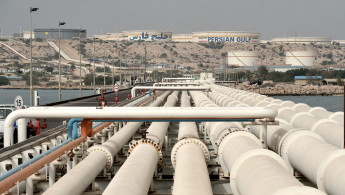Iran oil minister calls for tripling output as a 'priority'
Iran should almost triple its crude output as a "priority" to boost its political clout, its oil minister said Monday, ahead of a meeting of major producing nations.
As Iran gears up for presidential elections in June, Bijan Namdar Zanganeh called on "any incoming administration to make raising oil output to 6.5 million barrels (per day) its first priority".
Iran produced 2.3 million barrels per day in March, according to latest data from the Organization of Petroleum Exporting Countries (OPEC).
Zanganeh's remarks, carried by the ministry's news agency SHANA, come a day before a meeting of the OPEC+ bloc made up of cartel members - among them Iran - and ten other oil exporters.
The meeting could result in an output boost as demand recovers from a coronavirus-induced collapse last year.
Zanganeh, who has headed the oil ministry for almost 16 years in total, has said he plans to retire after President Hassan Rouhani leaves office in August.
Iranians are set to vote on June 18 to choose a successor to Rouhani, who is constitutionally barred from running after two consecutive terms.
Iran is also currently engaged in talks with world powers in Vienna as they try to revive a nuclear deal torpedoed by former US president Donald Trump in 2018.
Negotiations have been underway since April to return Washington to the agreement and lift sanctions on Tehran, while also bringing Iran back into compliance with nuclear commitments it dropped in response to US sanctions.
Sanctions reimposed by Trump deprived Iran of the economic benefits the deal had promised, especially by blocking the Islamic republic's vital oil export lifeline and access to its funds abroad.
Boosting Iran's oil output would amount to increasing the country's "security and political power", Zanganeh said.
He added that Iran could "easily" achieve such a target, which would not be a "strange or unattainable goal".





 Follow the Middle East's top stories in English at The New Arab on Google News
Follow the Middle East's top stories in English at The New Arab on Google News

![Israeli forces ordered bombed Gaza's Jabalia, ordering residents to leave [Getty]](/sites/default/files/styles/image_330x185/public/2176418030.jpeg?h=a5f2f23a&itok=_YGZaP1z)
